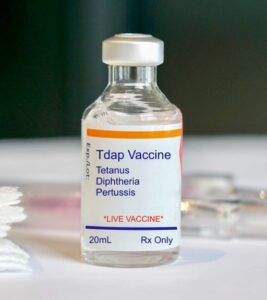Hasan Gokal MD
September 23, 2021
The development of COVID vaccines was an incredible game changer. During the first wave of

COVID in March of 2020, the medical system in New York City was overwhelmed and people
died without access to medical care. Since then, the vaccine has changed the utilization of the medical system from what we saw in New York City in March 2020, to the more manageable rate that we see in places like Houston today.
It allowed those most vulnerable and concerned to protect themselves and their families, while the unimmunized occupied the majority of the ICU beds.
So why are we advocating for boosters at this point?
In theory, there are many reasons why boosters may be necessary:

- Immunity wanes over time, and boosters are necessary in some diseases (e.g., tetanus). Even though only less than a year has elapsed since we started vaccinating the public, we know that the levels of antibodies against COVID do decrease. Therefore, a booster makes theoretical sense.
- Not everybody produces the same robust antibody (immune) response. If we know that someone has a weak immune system, they will be likely to benefit from a booster.
- Some vaccines offer better protection against the variants than others. Therefore, a booster with an alternate vaccine makes sense.
- If two doses of a vaccine are pretty safe, what’s the harm in taking a third dose after a while?
The arguments in favor of using a booster are generally reasonable.
What are some of the down sides?
Here are some potential words of caution against the early adoption of boosters:
- These vaccines haven’t been studied to use as a booster. When the Pfizer and Moderna vaccines were released, they were done after having been studied carefully and while following specific protocols. The age range, exclusion criteria, and others considerations were included the study protocols. The use of 2 shots separated by a certain time were found to be effective and safe. Just as children below a certain age were not studied, neither was the use of a third shot as a booster.
- The potential for a hyper-immune response. We now understand that most of the damage that leads to death with COVID occurs due to a strong immune response which ends up damaging functional lung tissue. There are reports of the booster causing worse symptoms compared to the initial vaccination. If someone has been properly immunized, there is a theoretical risk that the immune system will mount a response against the booster, leading to some of the detrimental effects. Is this a real concern or purely theoretical? As an emergency physician, I have seen patients in the emergency department with various unusual symptoms which seemed to start shortly after the booster was administered. The frequency of these issues seems to be much higher than the primary immunization. Some of my colleagues have anecdotally reported the same. I fully understand that observations by a handful of physicians does not establish safety, or lack thereof. However, it does beg the question whether further research is needed before widespread recommendations.
Many questions are therefore unanswered, including:

- Should the booster be the same dose as the original vaccines?
- Would changing the type of vaccine be of greater benefit?
- Should there be exclusions among certain individuals (e.g., if a person had covid with a significant and detrimental immune response, or those with a history of leg clots)
- Should boosters be reserved for certain demographics? Or should they be advocated for those with certain specific conditions known to prevent proper immune responses?
- Should physicians check for quantitative antibody levels to determine immunity against COVID before recommending a booster?
At this point, people who have been vaccinated generally don’t get very sick from COVID, regardless of when they were immunized. Therefore, in due time, the need for boosters may be increasingly obvious. However, it should not be reflexive, and requires further study.